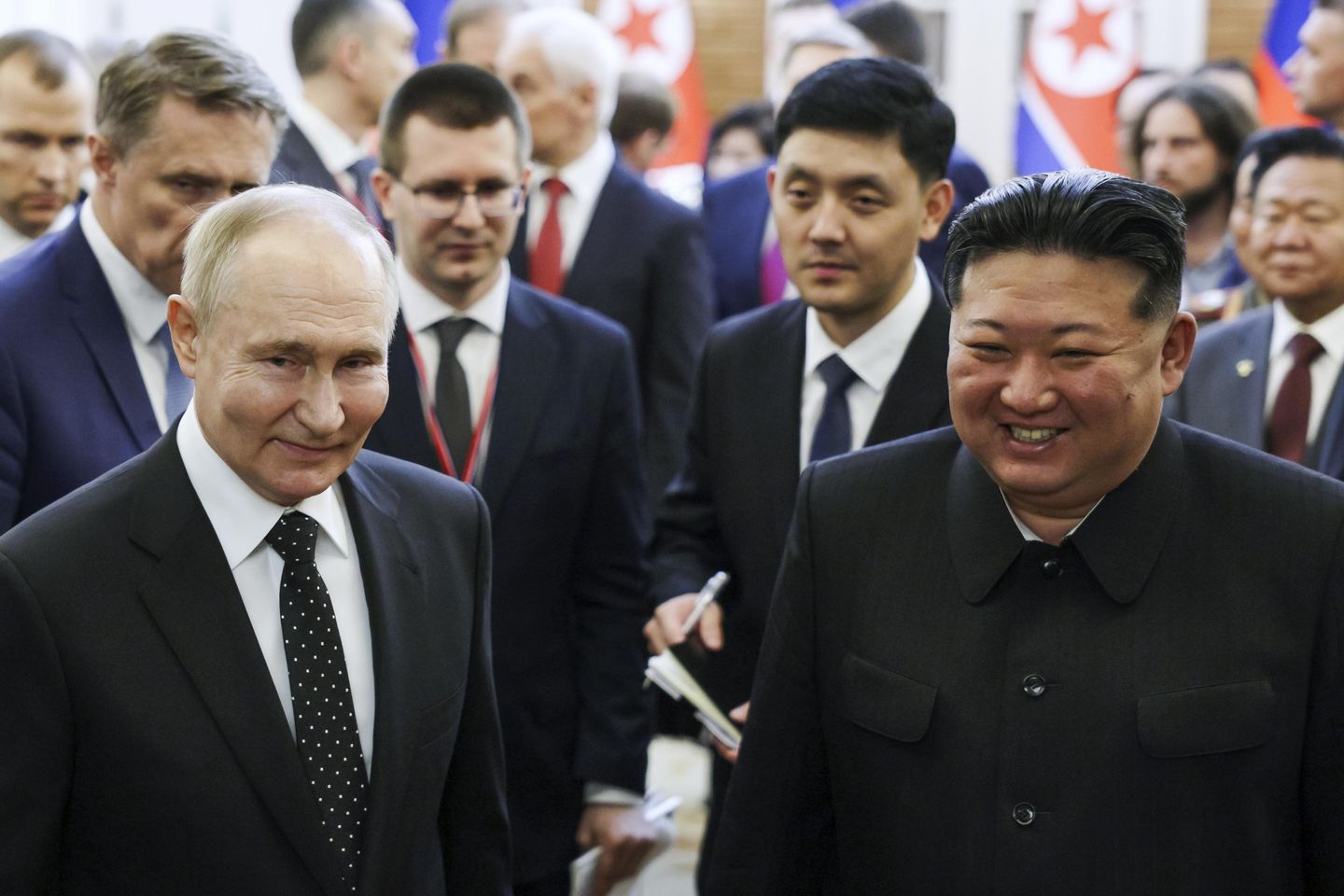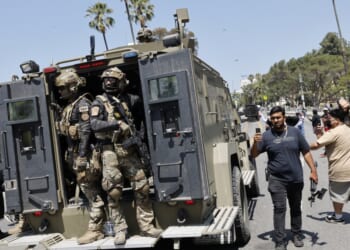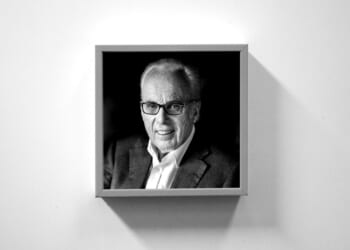
Russian President Vladimir Putin and North Korean leader Kim Jong-un are among more than two dozen foreign leaders expected to be in Beijing next week for China’s massive military parade marking the 80th anniversary of Japan’s surrender in World War II.
Despite the high-ranking foreign guest list, China experts at the RAND Corporation think tank say the highly choreographed spectacle featuring thousands of marching troops and hundreds of tanks and aircraft rolling through Tiananmen Square is primarily aimed at a domestic audience.
The last “Victory Day” parade was held in 2015 to mark the 70th anniversary of the war’s end.
“At that time, [Chinese President] Xi Jinping was consolidating power and the Chinese Communist Party acknowledged serious problems with corruption,” said Timothy Heath, a senior defense analyst at RAND. “Their popularity was plummeting, and there were a host of problems eroding public support.”
After the 2015 parade, Mr. Xi launched a widespread anti-corruption campaign to bolster his credibility with the Chinese public. Beijing sees the parade as part of a patriotic push, Mr. Heath said Thursday at the D.C.-based Defense Writers Group.
The secondary audience for the Sept. 3 parade is the “Global South” and essentially any other country not called the United States or Taiwan, Mr. Heath said.
“When the first parade was announced, China was making a push to be a major actor on the global stage,” he said. “The parade came out with a message that China was opposing unilateralism and standing up for countries that felt bullied.”
China is sending a message to other countries through the parade that they are ready to assist any country willing to align itself with them. But Mr. Xi’s message to Taiwan and its main benefactor, the United States, is more ominous.
“Be careful antagonizing China. China has a lot of ways to hurt you,” Mr. Heath said.
Beijing refers to World War II as the “Chinese People’s War of Resistance Against Japanese Aggression” and said Tokyo’s surrender was a “victory for the Chinese people.”
“Now the international situation is going through changes and turbulence. Peace deficit is rising,” Assistant Foreign Minister Hong Lei said at a press conference. “We all have a formidable task in safeguarding world peace.”
He said China and the former Soviet Union provided the backdrop for the fiercest fighting in Asian and Europe during World War II.
“Both have made enormous national sacrifices. The people of the two countries fought side by side and extended each other support, saving their respective nations and the future of humanity,” Mr. Hong said.
This year’s military parade will have a heavy anti-Japan focus and demonstrate the Chinese Communist Party’s leadership over the military, analysts said.
“Xi Jinping has made institutional modernization and institutional reform a major emphasis for his tenure,” as chairman of the CCP, said Mark Cozad, a former Defense Intelligence Agency official now with RAND. “The parade plays to where the [People’s Liberation Army] has been very successful — technological modernization. They get to show their wares, and they get to show them to an international community.”
China appears to be using the World War II victory parade to make none-too-subtle comparisons between wartime Japan and the United States.
“This is a message they are promoting: There is currently a tyrannical power trying to declare hegemony around the world,” Mr. Heath said. “It was up to China and Russia and other friends to stand up to [Japan], and we can do it again if we work together.”
A major difference between the 2015 Chinese victory parade and next month’s is the deteriorating state of the relationship between Beijing and Washington, Mr. Cozad said.
“There is not a lot of confidence in China that it is going to improve anytime soon,” he said. “China’s relationship with a lot of the world has worsened due to its trade policies.”

















